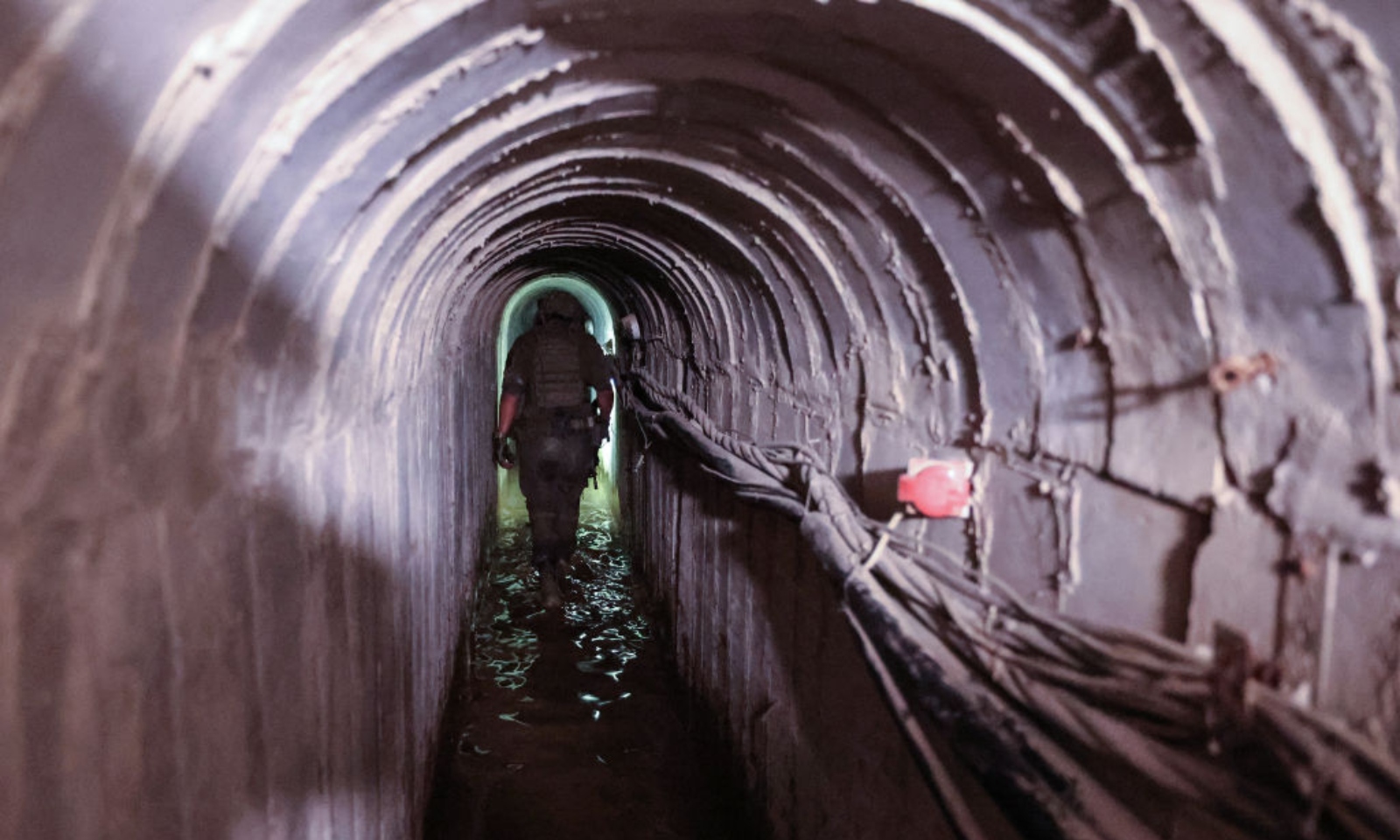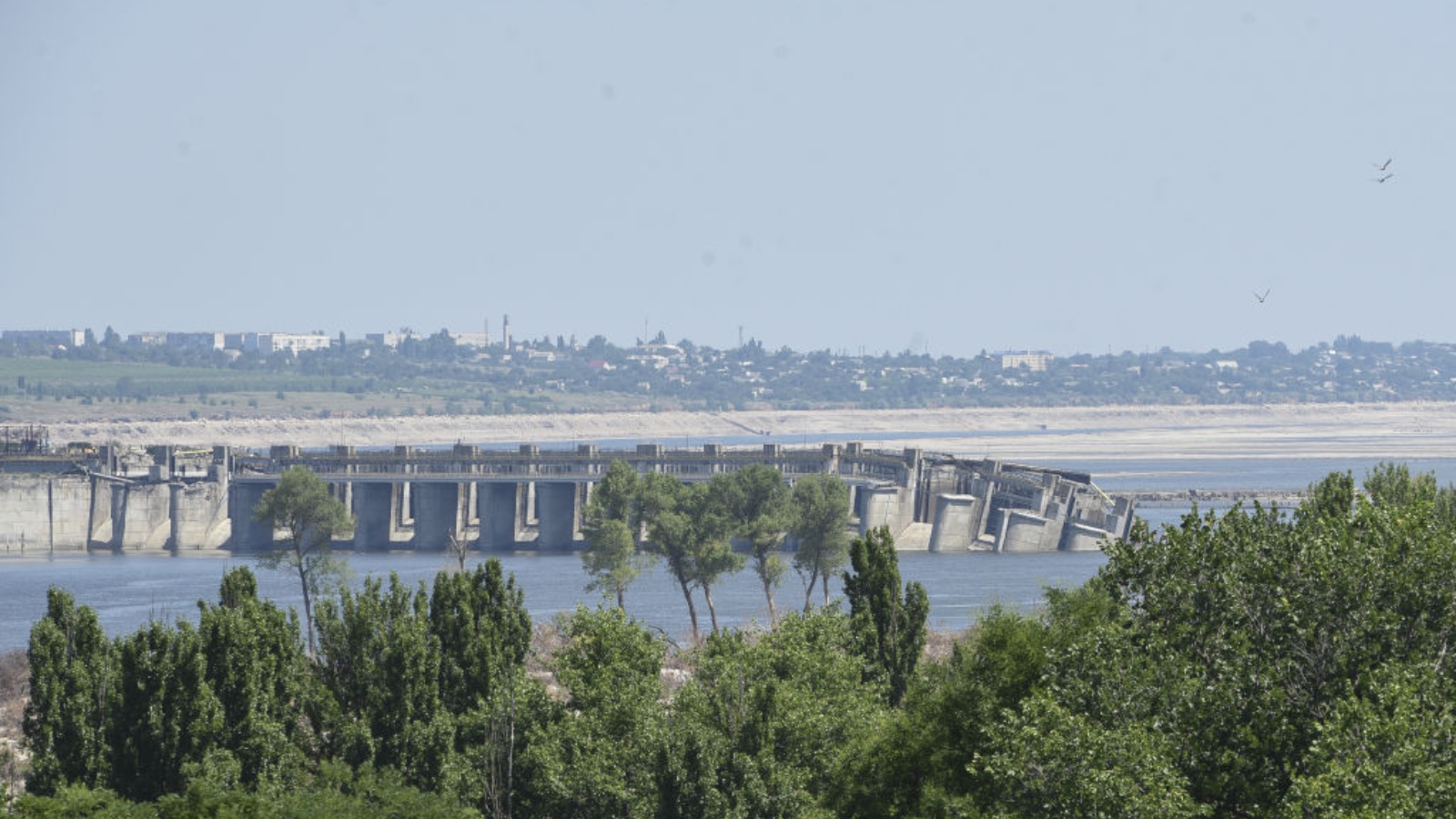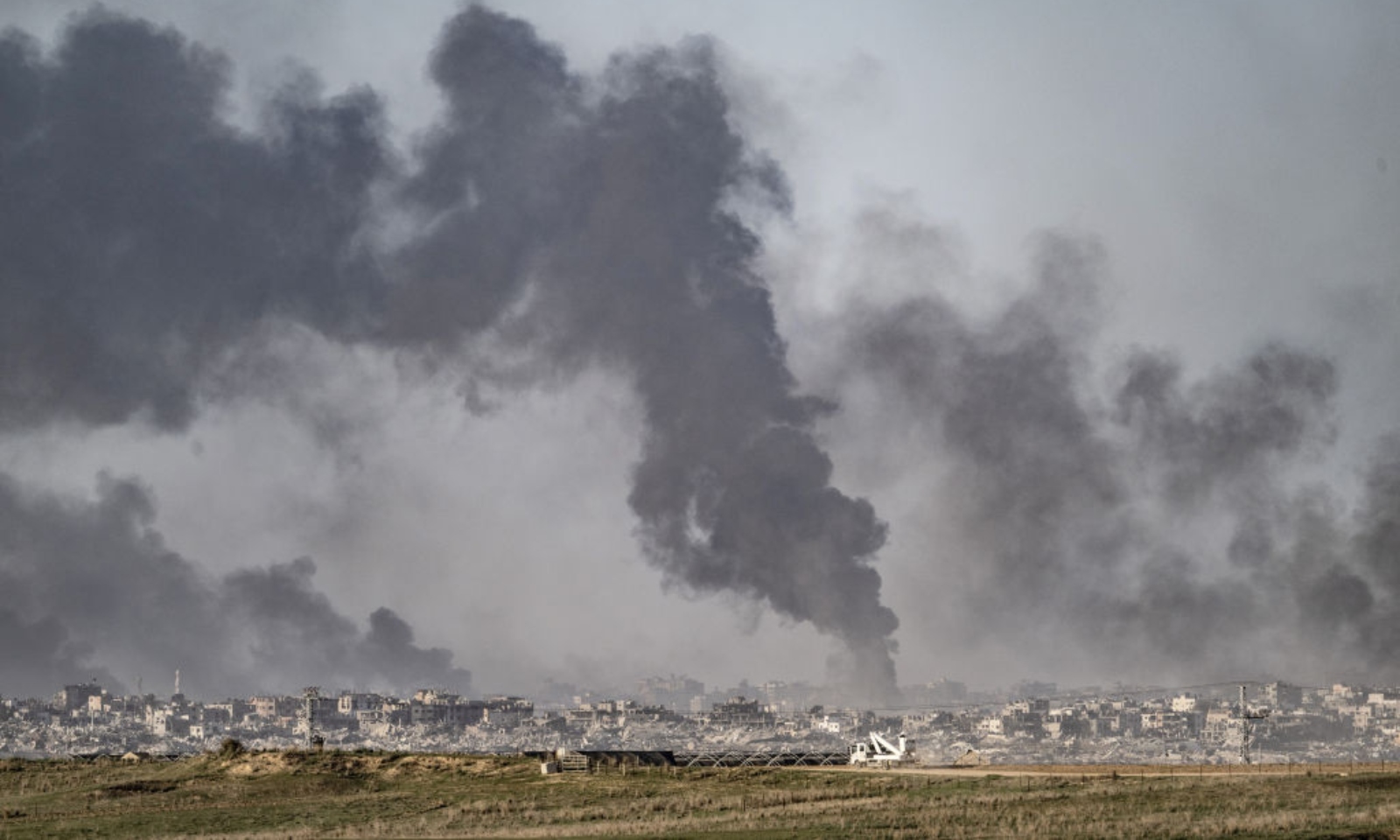When reports emerged in late December that the Israeli military planned to pump seawater into the underground tunnel networks used by Hamas fighters in Gaza, scientists and advocates around the world raised alarm over the prospect of an environmental disaster. Flooding the tunnels threatened to permanently salinate the land, making it impossible to cultivate crops. Seawater could also seep underground and into an aquifer that the majority of Gazans rely on for water. Palestinian rights groups and protesters around the world were already accusing the Israeli government of committing genocide against the Palestinians, with more than 20,000 killed by Israeli bombings on Gaza since Hamas’ attack on southern Israel last October. Now, another term entered the conversation: ecocide.
Broadly defined as the severe, widespread, and long-term destruction of the environment, ecocide isn’t considered a crime under international law. At the moment, the only way to prosecute vast environmental destruction internationally is as a war crime in the International Criminal Court, based in The Hague, Netherlands. But a growing number of countries, advocates, and legal experts are trying to change that. While some, like representatives from the island nation of Vanuatu, are motivated by the escalating climate crisis, and others, like Ukraine, are more interested in prosecuting environmental war crimes, they ultimately share the same goal: making ecocide the fifth international crime the ICC could prosecute, along with crimes against humanity, war crimes, crimes of aggression, and genocide.
Their campaign reached a major milestone in 2021, when a panel of legal experts worked over six months to create a legal definition of ecocide. Afterward, a number of countries and the European Union incorporated at least part of this definition into new legislation, which, experts said, increases the likelihood that it will eventually be adopted by the International Criminal Court. While there are plenty of obstacles to making such a law effective, advocates interviewed for this story said that the symbolic importance could have far-reaching consequences. Creating a law against ecocide could eventually force government officials and corporate executives to think twice before polluting rivers, poisoning the air, or destroying the land.
“It would make clear what we care about and what we think cannot be left to individual states to regulate,” said Kate Mackintosh, the executive director of the Netherlands-based UCLA Law Promise Institute Europe, which provides training for students interested in international law. She explained that to be a crime under international law, an act must be a violation against not only its direct victims, but all of humanity. “Destroying our environment has got to be on that level.”

Jack Guez / AFP via Getty Images
The term ecocide was coined during the Vietnam War after the U.S. military sprayed more than 90 million liters of Agent Orange and other herbicides across South Vietnam’s countryside. The chemical’s 20-year half-life can increase to more than 100 years if it’s buried beneath the soil, and people in southern Vietnam are still living with its effects more than half a century later. After visiting the region in the early 1970s and observing the chemicals’ devastating effects, a group of American scientists and legal experts began a campaign against using herbicide as a weapon of war. Their efforts led to an executive order by President Gerald Ford in 1975 renouncing the use of defoliants in future wars and to a U.N. convention in 1978 prohibiting the “hostile use of environmental modification techniques.”
But none of these official declarations made ecocide prosecutable as a crime under international law, experts pointed out, underscoring the significance of the current campaign to codify it as one.
After the adoption of the U.N. convention, the movement against ecocide died down for the next several decades. When it reemerged in the early 2000s, it was tied to concerns about climate change. A U.K.-based campaign helmed by the late lawyer and environmentalist Polly Higgins gained traction at the ICC’s annual assembly in 2019, when Vanuatu called for the Court to consider recognizing the crime of ecocide. The South Pacific island nation, where sea level rise has eaten away coastlines and saltwater has contaminated most sources of drinking water, is widely considered to be a leader in the global fight against climate change.
Vanuatu’s petition “put ecocide back on the diplomatic table,” said the British environmentalist Jojo Mehta, who founded the Stop Ecocide campaign with Higgins in 2017. It was the impetus for that panel of lawyers to convene in 2021 with the aim of developing a legal definition of ecocide that could be adopted by the ICC. After months of deliberation, they settled on the meaning of ecocide as “unlawful or wanton acts committed with knowledge that there is a substantial likelihood of severe and either widespread or long-term damage to the environment being caused by those acts.”
Mackintosh, who was on the panel, emphasized that this definition allows prosecutors to pursue legal action simply if they can prove the intent to cause environmental harm. “The crime is not making the damage happen,” she explained. “It’s creating substantial risk of that damage.”
This distinction fills an important gap in the ICC’s legal code. The Rome Statute, the treaty that established the Court in 2002, criminalizes environmental damage under its war crimes statute. Prosecutors must prove that the damage to the environment is “widespread, long-term, and severe” — that is, the damage must already be done. But there hasn’t been a single successful prosecution of environmental crime under this statute, not even in seemingly clear-cut cases, such as the Russian military’s destruction of the Kakhovka Dam in southern Ukraine last summer. The more than 1-mile long hydropower facility held back one of Europe’s largest reservoirs, and when it burst, a torrent of water flooded over 230 square miles, killed scores of people, and spread chemical pollution across the land.
While there is no clear path for codifying ecocide as a crime under international law, Mehta said, the campaign has already cleared several hurdles, particularly with the European Union’s adoption of its own ecocide law in November. In the coming years, the Stop Ecocide campaign will focus on getting together an informal group of countries willing to propose a law at the ICC’s annual assembly. “It’s not really a question of if,” she said “It’s a how and a when.”
The campaigners pushing for an international ecocide law have two main objectives. The first would be to bring specific people, such as the military officers behind the Kakhovka Dam’s destruction, to justice, because the ICC requires that defendants be individuals rather than governments or corporations. That presents some challenges, said Richard Falk, a veteran legal expert and environmental advocate. (Falk, along with the biologist Arthur Galston, was the first to use the term “ecocide” in the 1970s.) For instance, if the ICC wanted to prosecute the fossil fuel giant Shell for contaminating vast swaths of the Niger Delta with crude oil, it would have to pin the blame on individuals within the company, rather than on the company itself.
“That would make the proof of intent extremely difficult,” though not impossible, to establish, Falk said.

The second major objective of an international ecocide law would be to prevent widespread environmental damage. On this point, experts Grist spoke to were torn about the effectiveness of an international ecocide law. For one, prosecuting any crime takes time, during which the environmental destruction may continue. What’s more, Falk said the ICC has previously behaved as a “policy instrument” of Europe and the U.S. and often votes with the flag rather than the law. In a case like the war in Gaza, countries might defend their diplomatic allies rather than trying to judge their guilt or innocence in good faith, he said.
Rob White, a professor of criminology at the University of Tasmania who has written extensively about ecocide, wrote in an email that he agreed with this perspective, adding that “one could well argue” that Israel’s actions in Gaza fit the existing Rome Statute’s standard of “widespread, long-term, and severe” environmental destruction. “However, as the genocide unfolding in Gaza also illustrates, international law is basically useless” in stopping the ongoing aggression, he said.
All four of the ecocide experts interviewed for this story said that Israel’s actions in Gaza could plausibly fit the definition of ecocide, as determined by the panel. Evidence of immense environmental devastation is everywhere in the Gaza Strip, from the razing of farm lands with heavy machinery to the use of white phosphorus on porous soil. The Israel military confirmed in late January that it had started flooding underground tunnels with seawater, raising fears that it will contaminate the main source of drinking water for the strip’s 2 million people.
While Mehta acknowledged that it would be difficult to stop acts like these even with an ecocide law in place, she is optimistic that the law would have a deterrent effect. She offered the example of the United Kingdom’s Children Act of 1989, which made it illegal for parents to hit their children, helping to turn a once-acceptable behavior into a taboo.
The law has “actually got a kind of cultural force to it, which I think is super, super important,” Mehta said.
The experts Grist interviewed insisted that an ecocide law would, at the very least, serve an important symbolic purpose.
“The impact of this kind of decision, even if it’s not enforced, does have a legitimating and mobilizing effect, on civil society activism,” Falk said. He pointed to his and scientists’ efforts after the Vietnam War, which led to Ford’s executive order and the U.N. declaration that effectively made the use of Agent Orange taboo. “It’s the most you can expect from the law,” he said.

